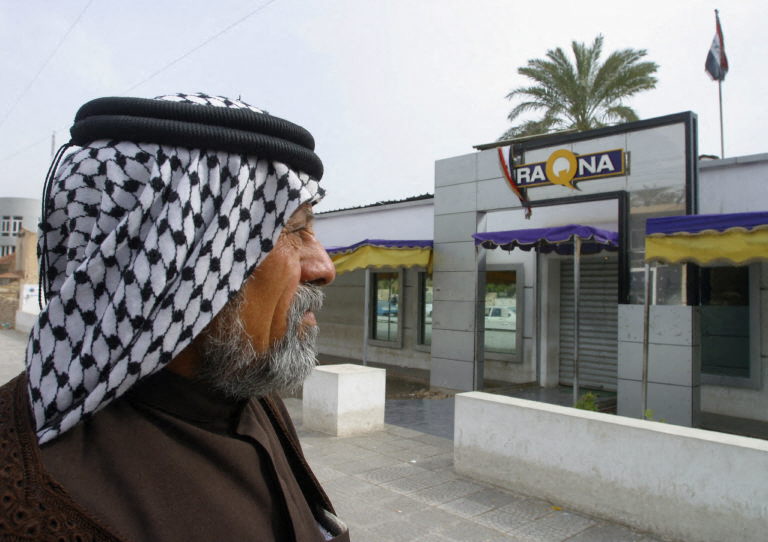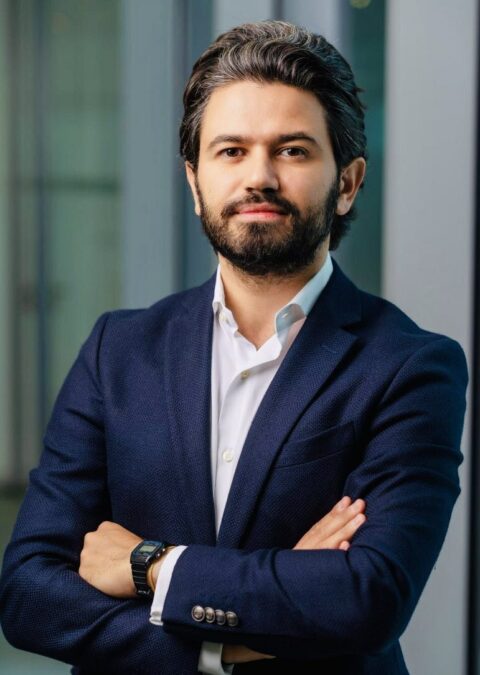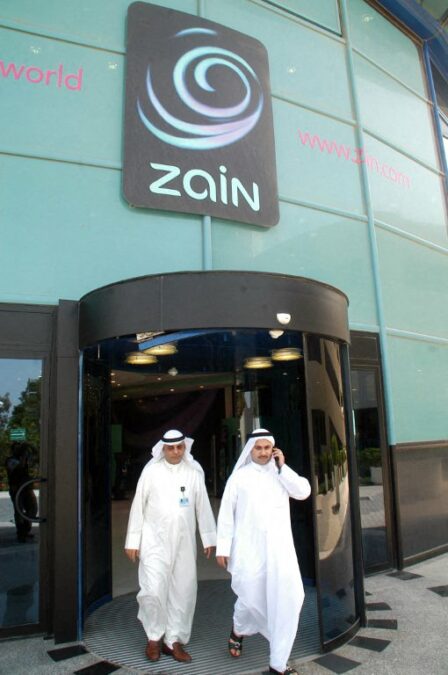Dubai, UAE–Major telecom companies of the Middle East have set their sights on markets in Asia, Europe and Africa to generate growth and diversify revenue streams. These firms have been struggling to grow their market share in the region in the face of market saturation and intense competition.
During the last few years many companies have struck alliances, set up joint ventures, and in many cases gone solo across many countries to widen their footprint beyond the borders of the Middle East.
Ooredoo acquired a controlling stake in Dialog Axiata, a Sri Lankan telecom operator. Etisalat has been bolstering its operations in Saudi Arabia. In the same fashion, the telecom company Zain formed a joint venture with MTN Group to launch a mobile network in Ghana. STC formed a strategic alliance with Telekom Malaysia to foster partnerships in Malaysia.
According to a Moody’s report, GCC telecom operators are eyeing expansion opportunities in Europe, Asia, and Africa. The move is driven by several factors, including the relatively lower valuations of international telecom companies, making it an opportune time to invest in overseas markets.
These “investments could be credit-supportive in the long term,” stated Moody’s in the report. However, “the benefits will depend on the balance between the maturity and growth potential of new geographies,” it added.
Telecommunication companies — according to Imad Atwi, a Partner with Strategy & Middle East, part of the PwC network — are increasingly expanding their reach outside of the region due to five main factors: market saturation, geographical diversification, revenue diversification, competitive advantage, as well as acquiring capabilities.

“The GCC region has a high penetration rate for mobile and internet services,” he told TRENDS; thus, expanding beyond the region offers telcos opportunities in less saturated markets with significant growth potential.
Geographical expansion is also important as it provides diversification of the portfolio beyond the GCC to mitigate risks associated with economic fluctuations and geopolitical tensions. This expansion also leads to new revenue streams across new products, diversification of the customer base, and scaling existing services.
Atwi emphasized that GCC telcos often possess significant financial strengths and technological capabilities, which can give them a competitive edge when entering new, underserved markets.
“As telcos further diversify their portfolio, they realize that some capabilities are not in the region and thus need to expand beyond the region to acquire those capabilities (such as cybersecurity, fintech, metaverse), and then utilize them back in their respective home markets,” he added.
Amir Abdelazim, a senior executive at Detecon International, agrees that GCC telecom’s expansion is about diversifying income and investments.
“The GCC has been predominantly a bit through a dollar economy, where fossil fuel is the main source of income, and we can see that most of the GCC countries under the leadership of Saudi or even, historically, UAE starting to create different sources of revenue.”

“ICT is riding the digitalization wave. So, the digital economy is large, and being a part of it is a good way to generate alternative revenue streams. As a result, one of the main drivers is to either become a hub for ICT and expert ICT services or to expand beyond the GCC and have a physical presence in various markets through ICT investments.”
The expansion of GCC telecom companies outside the region and the rise of telecom M&A are significant developments that have the potential to reshape the global telecom landscape. These companies are bringing their expertise, experience, and capital, which are helping to drive innovation and investment in emerging markets.
Emirates Telecommunications Group Co PJSC (e&), acquired a 14.6 percent stake in Vodafone Group PLC. Vodafone is a leading industry player in Europe and Africa. Additionally, e& has agreed to purchase international assets from PPF Telecom Group B.V.
According to Moody’s, e& is poised to spearhead revenue growth in the GCC telecom sector in 2024. The report noted that telecom companies in the region could hit an average annual revenue increase of 3 percent. For e&, the forecast is substantially higher: approximately 20 percent. This growth is primarily due to the consolidation of PPF Telecom assets.
In the third quarter of last year, e& posted a net profit worth $3.6 billion. This reflects a 20 percent year-on-year (YoY) surge. Meanwhile, its subscriber base hit a record high after reaching 14 million by the end of Q3.
The Saudi Telecom Company (stc) has also made a remarkable move, securing a 9.9 percent stake in Telefónica S.A.
stc growth strategy has resulted in several investments in the information, communication and technology sector inside Saudi Arabia and globally, the most recent being the acquisition by Tawal – a subsidiary of stc Group – of United Group’s telecommunications tower assets in Bulgaria, Croatia, and Slovenia.
Europe, as per Moody’s, will likely serve as the primary region for expansion among GCC telecom players. A significant factor is that the continent aligns well with the existing footprint in the GCC. Moreover, it offers diversification opportunities, allowing regional players to tap into more developed jurisdictions.
For example, stc is broadening its investment horizons to include “Europe” and diversifying its investments today. It is not a typical telecommunications firm. It now invests in telecommunications and towers through its “Twal” arm, communications channels through “ST CTV,” and cybersecurity through “Sarar” in addition to investments in cloud computing, Smart Zone Real Estate Company, STC Bank, Akalat Real Estate and Contracting Company, and other companies.

The financial results highlight the company’s growth through net profits, continuous distributions, and expansion, which was reflected in this performance. It is clear that the company only takes an expansion step if it has done extensive research to ensure that it is an investment that will add to it; this diversification and expansion guarantees the company stability and growth in its revenues.
Nevertheless, the report noted that European governments may be cautious when approving acquisitions of strategic telecom assets by foreign investors. This acquires sizeable minority shareholdings, a potentially attractive option.
As part of their diversification efforts, GCC operators also actively invest in digital consumer services and tech enterprise solutions. In parallel, they are also divesting their tower infrastructure, a move expected to unlock financial resources and enhance operational efficiency.
The telecom market in the these continents present immense potential for mobile connectivity, internet infrastructure, and digital solutions, offering avenues for substantial expansion, enticing GCC telecom firms to capitalize on their growth potential.
In addition to it, the evolving landscape of regulatory reforms within the GCC, marked by increasing liberalization in telecom markets, has facilitated a smoother pathway for companies aiming to extend their operations overseas, further propelling their push into new territories.
According to Atwi, GCC telecom companies have been targeting specific global markets based on market attractiveness in terms of growth and competitive landscape, ability to target, and potential synergies on both the top and bottom lines. These regions include North and Sub-Saharan Africa, Central and Eastern Europe, and Southeast Asia.
“These regions exhibit strong growth in digital infrastructure and ICT domains, have large customer base and underpenetrated telecom / digital market, and are in close proximity to GCC to enable value creation and synergies extraction via cross-selling and upselling opportunities,” he said, adding that expanding into new markets would require substantial upfront investments, especially when looking at mergers and acquisition deals in infrastructure and other digital assets.
For example, stc’s TAWAL recently acquired United Group Tower Assets in Bulgaria, Croatia, and Slovenia for $1.33 billion. The profit potential depends on many key factors, including a deep understanding of local market dynamics, the ability to offer competitive services, and the successful integration of those expansion opportunities and deals.
Abdelazim believes the expansions are a business case in the end, and the interest of expansion is “here and there,” for example, we can see the interest of the Etisalat Group in Vodafone. Also, stc has expanded outside of the Gulf and acquired some service companies in Egypt, and they also have an interest in expanding in Africa. So, GCC companies nowadays are looking for profitability as the key. Thus, it’s not about this or that country. The primary goal is profit and the creation of money.

Despite their expansion efforts beyond the GCC region, telecom companies encounter several formidable challenges. Primarily, they confront fierce competition from local telecom entities upon entering new markets, intensifying the struggle for market share and consumer attention.
Moreover, navigating through the intricate web of regulations in these new territories poses a significant hurdle, demanding meticulous adherence and often leading to protracted procedural complexities.
Additionally, grappling with cultural disparities becomes imperative as these companies must sensitively adapt to the diverse norms and values prevalent in the countries they venture into.
Alongside these hurdles, the confluence of high interest rates, inflationary pressures, and the amplified intricacies of regulatory frameworks further compound the complexities faced by GCC telecom companies operating beyond their home base.
“If you go outside, you will see that there were few Emirati acquisitions in the USA, for example, that were stopped by regulations,” Abdelazim said, adding that the main challenge of going outside the GCC is skilled density and getting through the regulations. The ICT sector is typically sensitive and influential in any economy.
However, regional operators are well positioned for heightened investment and merger and acquisition activities despite these challenges. This is thanks to their strong credit quality, sound credit metrics, robust balance sheets, and substantial cash reserves.
In Abdelazim’s opinion, investment portfolios such as Saudi Arabia’s SpaceX and satellite communication investments truly define and advance the future of telecommunication.
Furthermore, investments are the primary key now. Gulf companies are buying and investing in football clubs, media companies, malls, and production. The sovereign funds of different GCC companies are clearly active in maximizing value for their citizens. It happens by looking for the best opportunity to define good profit but also secure the value chain.
According to him, telco operators are no longer the traditional telco; today, we’re talking about B2B and enterprise investments. There is now a significant space in the B2B enterprise market where operators are capturing opportunities.
“Retail is no longer a source of revenue for telecommunications companies,” he said. It is income diversity on a national level and income diversity by switching from telco to teco, which means switching from a telecommunications company to a technology company.
Being a technology company entails investing in startups, purchasing stakes in other companies, transitioning to the B2B industry, and even investing in and purchasing e-commerce platforms and media content, so telecommunications companies are becoming one-stop shops for all technology suppliers, and I believe this model is coming to the region and becoming a technology provider.
So, the only way to make money is to diversify and move into providing all the technology in one place, such as smart city solutions, cloud applications, and IoT.
The expansion of GCC telecom companies beyond the region signifies a pivotal shift in their growth strategies. By venturing into international markets, these companies aim to capitalize on new opportunities, diversify their revenue streams, and contribute their expertise to global telecommunications development.
This expansion not only benefits the companies themselves but also brings advanced technologies and improved connectivity to regions seeking to enhance their digital infrastructure and services.
Box:
- Ooredoo: Ooredoo has a presence in more than 10 countries around the world, including Algeria, Indonesia, Myanmar, and Tunisia.
- Zain: Zain has operations in eight countries, including Iraq, Jordan, and South Sudan.
- Etisalat: Etisalat has operations in 16 countries, including Egypt, Pakistan, and Afghanistan.
- STC: STC has a presence in 10 countries, including Bahrain, Indonesia, Malaysia, Pakistan and Egypt.

